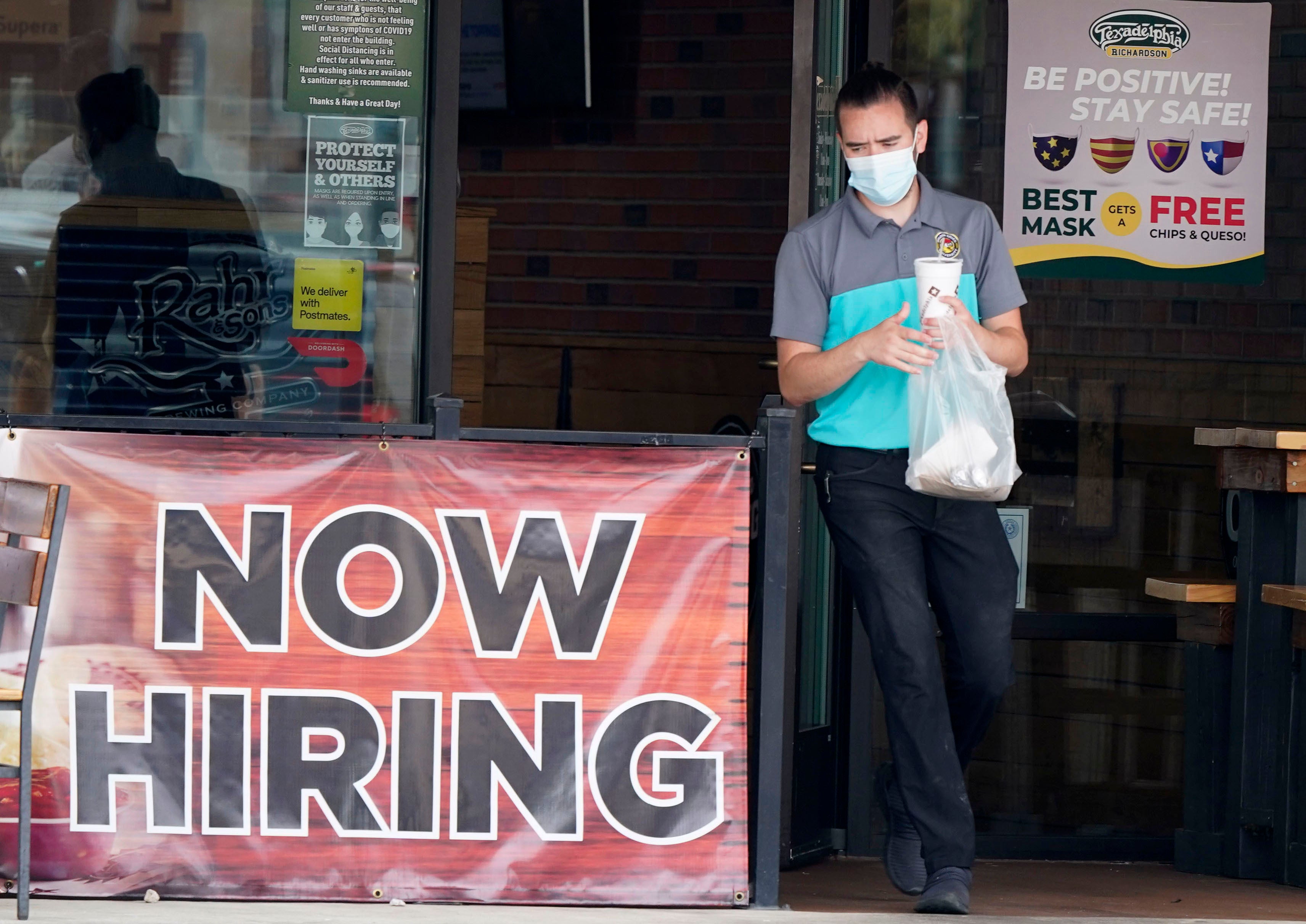751,000 seek US jobless benefits as virus hobbles economy
The number of Americans seeking unemployment benefits fell slightly last week to 751,000, a still-historically high level that shows that many employers keep cutting jobs in the face of the accelerating pandemic

Your support helps us to tell the story
From reproductive rights to climate change to Big Tech, The Independent is on the ground when the story is developing. Whether it's investigating the financials of Elon Musk's pro-Trump PAC or producing our latest documentary, 'The A Word', which shines a light on the American women fighting for reproductive rights, we know how important it is to parse out the facts from the messaging.
At such a critical moment in US history, we need reporters on the ground. Your donation allows us to keep sending journalists to speak to both sides of the story.
The Independent is trusted by Americans across the entire political spectrum. And unlike many other quality news outlets, we choose not to lock Americans out of our reporting and analysis with paywalls. We believe quality journalism should be available to everyone, paid for by those who can afford it.
Your support makes all the difference.The number of Americans seeking unemployment benefits fell slightly last week to 751,000, a still-historically high level that shows that many employers keep cutting jobs in the face of the accelerating pandemic.
A surge in viral cases and Congress’ failure so far to provide more aid for struggling individuals and businesses are threatening to deepen Americans' economic pain. Eight months after the pandemic flattened the economy weekly jobless claims still point to a stream of layoffs. Before the virus struck in March, the weekly figure had remained below 300,000 for more than five straight years.
Thursday’s report from the Labor Department said the number of people who are continuing to receive traditional unemployment benefits declined to 7.3 million. That figure shows that some of the unemployed are being recalled to their old jobs or are finding new ones. But it also indicates that many jobless Americans have used up their state unemployment aid — which typically expires after six months — and have transitioned to a federal extended benefits program that lasts an additional 13 weeks.
The job market has been under pressure since the virus paralyzed the economy and has regained barely half the 22 million jobs that were lost to the pandemic in early spring. The pace of rehiring has steadily weakened — from 4.8 million added jobs in June to 661,000 in September. On Friday, when the government issues the October jobs report, economists foresee a further slowdown — to 580,000 added jobs — according to a survey by the data firm FactSet.
The financial aid package that Congress enacted in the spring included a $600-a-week federal jobless benefit and $1,200 checks that went to most adults, in addition to assistance for small businesses. All that money has run out. Without additional federal aid, millions of unemployed Americans likely will lose all their jobless benefits in coming weeks and months, probably forcing them to scale back their spending. And many small companies could go out of business.